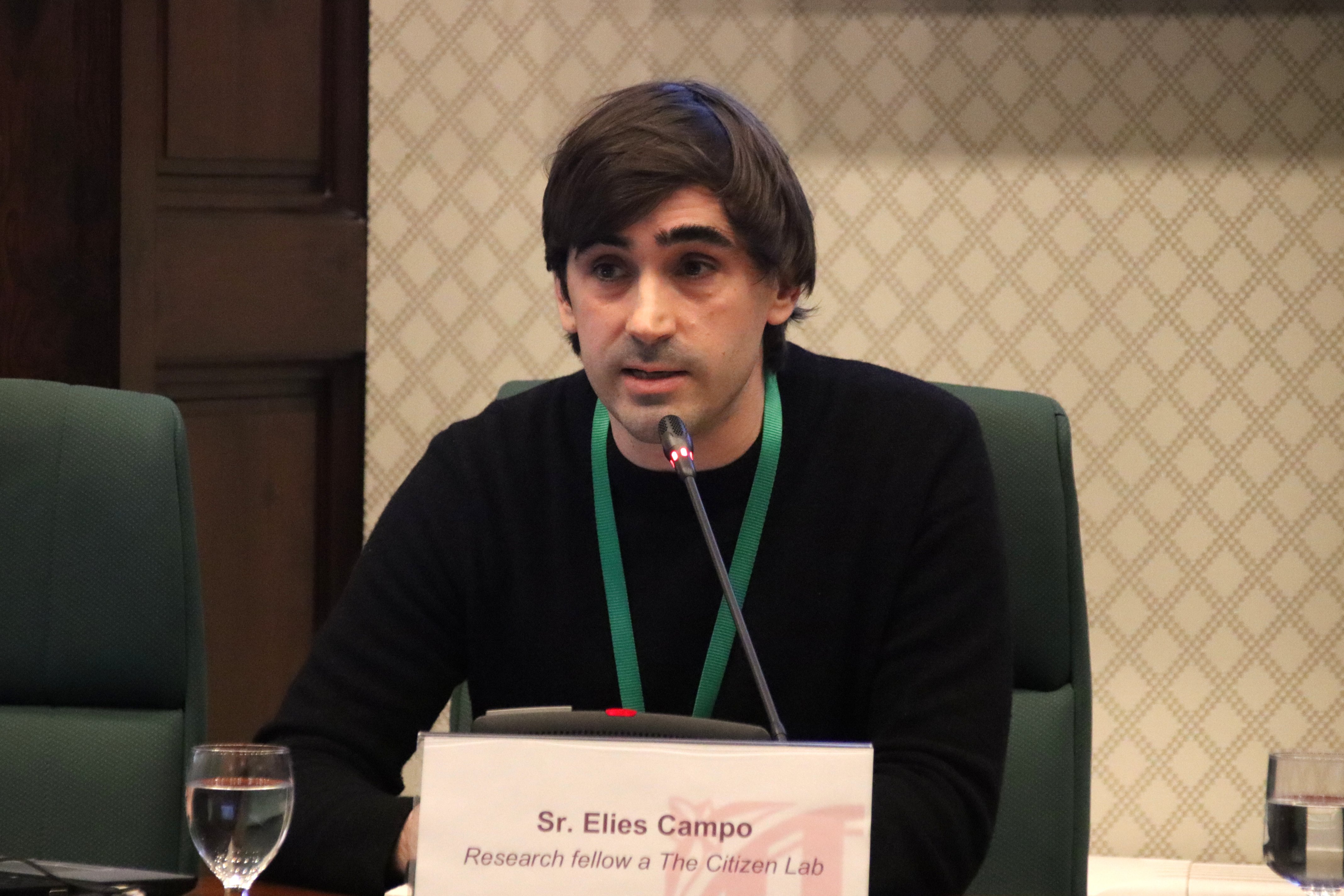The telecommunications engineer and fellow of the Canadian research centre Citizen Lab, Elies Campo, appeared in the Catalan Parliament this Friday at a hearing of the chamber's Catalangate committee, to provide information on this espionage case which targeted more than sixty politicians and other figures in Catalan society linked to the independence movement. As editor of the Citizen Lab report that revealed details about the whole espionage operation, he highlighted during his appearance before the committee that this case has certified that there has been "a democratic crisis" in the Spanish state. According to Campo, the researchers do not analyze "the legal background of the affected country, but rather we certify what has happened, which is that there has been a democratic crisis through the abuse of this type of software - in reference to the sophisticated Pegasus and Candiru programs - in civil society."
Elies Campo, who appeared as a witness at the committee of inquiry into the espionage against Catalan political representatives, activists, journalists and family members by the Spanish state through the use of Pegasus and Candiru, denounced the "constant disinformation" that has contaminated this whole case. "It is the biggest case in terms of the type of disinformation, its scope and duration, which is generated almost daily," he added. At the same time, Campo criticized that people seek to "discredit and undermine" Citizen Lab researchers and the organization itself.
- US gives credence to the reports on Spain's Pegasus use against the independence movement
- All our stories on the Catalangate case and the use of Pegasus espionage in Spain
In fact, the researcher specified that, although they have always found "the same pattern of reactions" from difference countries who have been caught practicing espionage of this kind, in the case of the Catalangate spying the volume of disinformation is "orders of magnitude greater", from his point of view. Campo explained that, usually, "first, governments or intelligence agencies deny it, then they partially accept it and, in the end, there is a dubious justification as to why they did it" .
Spanish state had a "special interest" in investigating some of the people spied on
One of the aspects that the witness emphasized was the fact that there was "special interest" from the Spanish government in investigating some of the people who were spied on. This espionage, he said, was linked to "one or more bodies" within the state executive, emphasizing that the National Intelligence Centre (CNI) has a license to use Pegasus. Finally, Elies Campo urged "an official investigation to find the party responsible" in view of the "gravity and extent" of what they were able to discover and reveal about the spying on cell phones of independence supporters and activists, which was practiced from 2015 to 2020.

